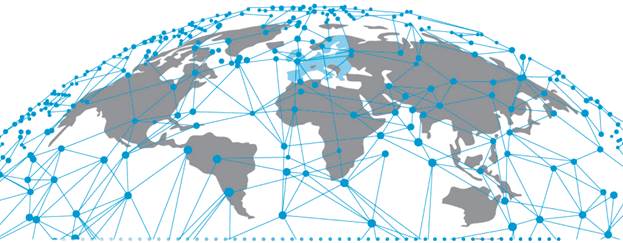In the age of Amazon and Alibaba it seems that our whole globe can have anything delivered within hours thanks to a small handful of incredibly powerful companies. Lynne and Rachel from the global OFN team are hosting a session at Mozilla Festival to bring together those of us working toward OSS solutions.
“We invite everyone working in logistics and distribution solutions within the OSS community, or folks running distribution processes thanks to OSS code, to join us to discuss, share experiences and dream about how we might combine our efforts even more effectively to provide genuine, sustainable solutions to one of the most difficult and impactful parts of our economy.”

The Session
When: 2021-03-09 14:30 CET
Where: Sustainability Space @ Mozilla Festival.
Tickets: Pay what you can. Book here.
Format: Interactive conversation with break out rooms.
Background
Distribution logistics is difficult. Increasing people are expecting produce to be delivered directly to their homes. The ‘last mile’ from the closest distribution node to the buyer’s door is the most expensive part of the chain, ecologically and financially. Yet demand for home delivery has surged, spurred by the pandemic. The expectation of home delivered goods is here to stay.
In distributing goods from the nearest distribution centre to home it helps to be big. If you have many deliveries on the same street the cost of each delivery is quite low. If each delivery is a mile or more apart the costs are high. Clearly there is a benefit to scale. This is the strategy that most home delivery offerings aim for – gain sufficient orders such that the delivery density is high enough and deliveries are profitable. It is the way to view the problem when single companies manage the distributions of their own products.
The same approach is employed by supermarket chains vying for the fresh food delivery market. A handful of supermarket chains compete for this custom spending more than half of their distribution route more than half empty. Supermarket delivery vehicles pass each other on their routes, probably near empty – a clear waste of energy, emissions and money. The problem is compounded for smaller businesses managing their delivery routes. Yet for most the cost of delivery is offset by the profit margin on the product itself and distorted economics in fuel and vehicle use, and is thus still more cost effective than outsourcing to a delivery company.
While much is understood about how to increase the efficiency in distribution logistics theoretically, implementing this within the market is another question. It is well understood that data sharing could yield huge efficiency gains, financially and ecologically. To date, many trials of such initiatives have been across long and vertically integrated supply chains. Factors such as trust, data quality and data sensitivity/privacy have been identified as potential barriers. Those innovating in this space tend to be bigger actors that already have significant economies of scale in their logistics.
The potential for OSS collaboration and innovation is significant, though the challenges are as well. Those working in OSS logistics tend to be smaller in scale and dealing with more diverse products. This increases the complexity of the coordination problem, but simplifies communication and trust building. By working with diverse supply collaborations can engage with real world problems ready to be scaled for sustainability – lower volumes, more actors, more diversity.
If you are interested further conversations around this topic please share your contact details with us here.